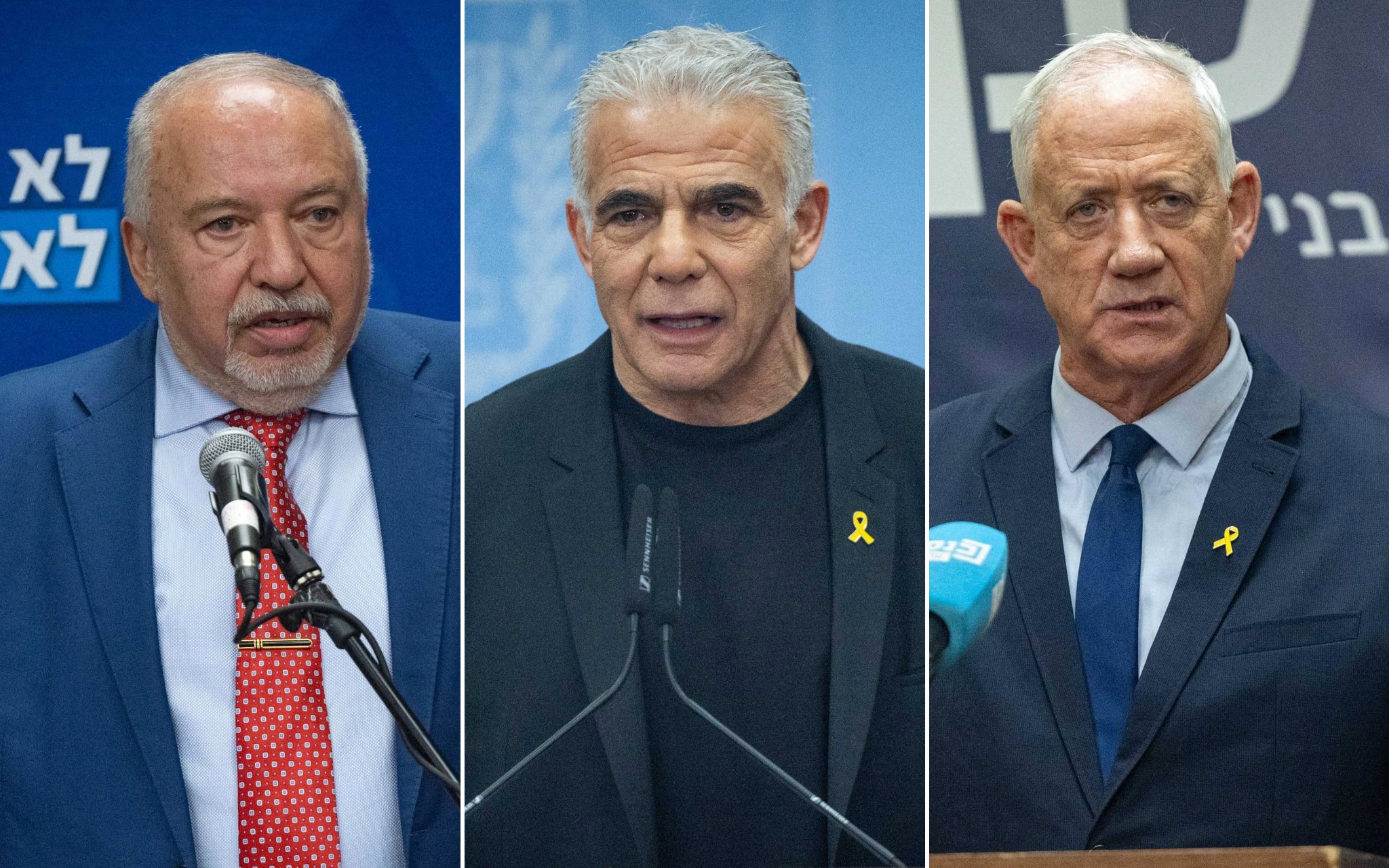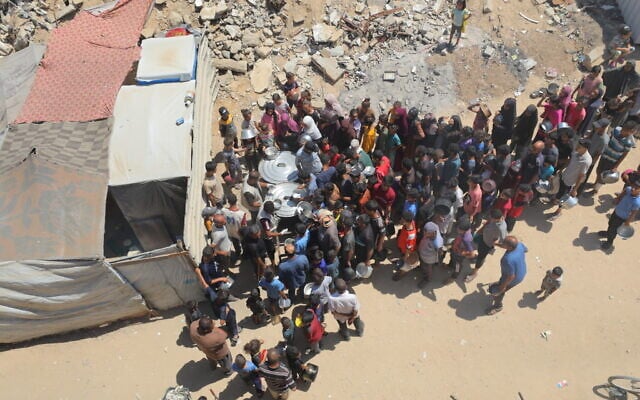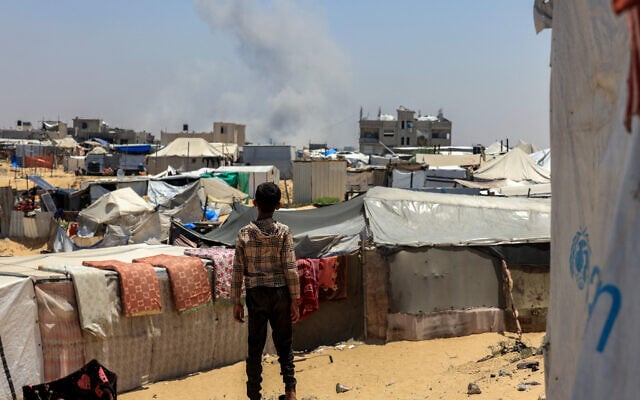



Opposition Leader Yair Lapid on Monday led a chorus of opposition to the government’s plan to create a so-called “humanitarian city” in the southern Gaza Strip, calling it “crazy — even by this government’s standards.”
“Prime Minister [Benjamin] Netanyahu, together with Finance Minister Bezalel Smotrich, want to establish what they call a ‘humanitarian city’ in Gaza, where more than 600,000 people would live — a city almost double the size of Tel Aviv,” the Yesh Atid leader said.
“Will its residents be allowed to leave? If not, how will they be prevented from leaving? Will there be a fence? A regular fence? An electric fence? How many soldiers will guard it?” Lapid asked, at the opening of his party’s weekly faction meeting.
“What will the soldiers do if children want to leave the city? Who will feed them? Who will be responsible for water and electricity? What will happen if there are epidemics and diseases? Who will treat them?”
“Most relevant for Israeli citizens: How much will this cost us?” Lapid pressed, adding that the most conservative estimated cost for the project is about NIS 15 billion (around $4.5 billion), while other estimates, including from the IDF, suggest it could cost upward of NIS 20 billion.
“It’s a crazy idea — even by this government’s standards. But we know how they operate: Before they admit failure, they’ll spend billions,” he concluded.
Israel’s plan for a “humanitarian city,” as laid out by Defense Minister Israel Katz early last week, would see Israel build a zone on the ruins of Rafah that would eventually house all of Gaza’s civilians.
The zone would first accommodate some 600,000 Gazans living in the Mawasi area on the coast, and then would contain the enclave’s entire population of more than 2 million.
Residents would be screened before entering and would not be allowed to leave, per the plan. International organizations would provide aid while the IDF secures the site from a distance, and residents would be encouraged to “voluntarily emigrate,” according to Katz.
Channel 12 has reported that the military brass is worried that proceeding with the humanitarian city could harm hostage and ceasefire talks, which are currently taking place in Qatar.
MK Avigdor Liberman, of the hawkish Yisrael Beytenu party, echoed Lapid’s comments on Monday, saying at the start of his own faction meeting: “It can’t be that the military chief of staff, who was appointed by the government only a few months ago, explains that the IDF strongly opposes this delusion that’s called a ‘humanitarian city’ in Gaza, at the cost of 15 billion shekels of Israeli taxpayer money, and the cabinet doubles down and tries to do it by force.”
“Someone will have to operate, guard, and maintain” the project, Liberman said, “and this will endanger our soldiers. Instead of ceasing to provide them with water, fuel, and goods, the government is attaching us to Gaza more and more.”
Blue and White – National Unity party chairman Benny Gantz said the proposed “city” would be a more dangerous, more expensive version of something he pitched in the early days of the war, saying that in November 2023, he called on the cabinet to create a “humanitarian triangle” managed by the international community.
“The government was afraid to do it in real time, and decided on other options — more dangerous, more expensive ones,” he said. “Now, they’re again working against the recommendation of the IDF — and it seems that politics have again trumped common sense.”
On Sunday, MK Gilad Kariv of left-wing The Democrats party wrote on Facebook that the planned zone would be “not ‘a city’ and not ‘humanitarian,’” and that the plan was untenable “from a security perspective,” but also “from an ethical and moral perspective.”
The war in Gaza started on October 7, 2023, when the Hamas terror group attacked Israel, killing some 1,200 people and abducting 251 as hostages. Fifty hostages — 20 of whom are believed to be alive — are still held in the Strip.


